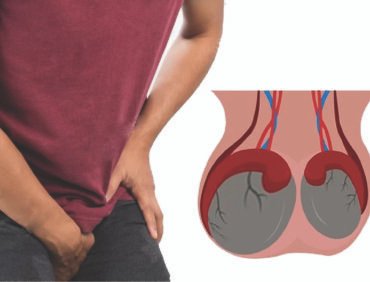In this write-up, you have everything you need to know concerning male infertility such as;
- what male infertility really is
- how common male infertility is
- male vs female infertility – which is more common?
- types and causes of male infertility
- Factors that can increase the possibility of infertility in a man
- signs and symptoms of male infertility
- Diagnosing male infertility – male fertility tests
- Treatments offered for male infertility in the hospital and their limitations
- Scientifically proven herbs and compounds (with research links) for overcoming male infertility
- And many more…
So, regardless of what you might know before concerning male infertility, this write up will surely help you learn more. Most importantly, it offers you scientifically proven safer options for overcoming different cases of male infertility other than the usual therapy you know of.
So, let’s get the ball rolling!
What is Male Infertility?

For several decades, researchers have known that sperm quality, sexual performance and fertility rates in men have been declining globally.
According to one 2017 study, the average sperm count in North America, Europe, Australia, and New Zealand dropped by 59.3% between 1973 and 2011.
We do not have the exact figure for Africa, Asia and other areas. However, what is constant is the fact that the experience is the same across board.
Despite studies having identified this, scientists still do not fully understand the reasons for this global decline in male fertility.
Male infertility is any health issue in a man that lowers the chances of his female partner/spouse getting pregnant after a series of unprotected sex.
According to the World Health Organization (WHO) and the International Committee Monitoring Assisted Reproductive Technologies (ICMART), failure to get pregnant is defined as clinical infertility if pregnancy is not established after 12 months or more of regular unprotected sexual intercourse.
This is why we normally tell many men that reach out to us concerning infertility cases to still try for a while more before commencing a fertility treatment, if they have not tried for up to 12 months at least.
While either one or both of the partners may contribute to the infertility challenges of the couple, male infertility, like female infertility, is a clinical diagnosis that can only be determined after a proper formal assessment and testing.
This simply means that you can’t just declare yourself infertile because you are not able to impregnate your partner.
You actually need to carry out some tests and get examined by a medical doctor. It is preferable if you get a Urologist to handle that.
We shall elaborate more on this later in this write-up.
How Common is Infertility in Men?

Studies suggest that after 1 year of having unprotected sex, 15% of couples are unable to conceive, and after 2 years, 10% of couples still have not had a successful pregnancy.
In couples younger than age 30, who are generally healthy, 20% to 37% are able to conceive in the first 3 months.
Overall, infertility affects both men and women equally. In couples experiencing infertility, approximately 35% is due to male factors, 35% is due to female factors. 20% of cases have a combination of both male and female factors. The last 10% are unexplained causes.
Male Infertility Statistics
- An estimated 7% of all men globally are affected by infertility
- 10-15% of infertile men have a complete lack of sperm
- The cause is unknown in around 50% of male infertility cases.
- Nearly 50% of men dealing with infertility have low sperm counts as the primary factor. This condition is considered to be the most common cause of infertility in men.
- 81% of couples having difficulty getting pregnant a second time receive a diagnosis of varicocele as the primary factor in infertility.
- Semen quality usually improves within 3 – 4 months after varicocele treatment. It takes that long for new sperm to grow and thrive in the improved environment that treatment creates.
- 60% of men suffering from varicocele will have improved semen quality after undergoing treatment for varicocele. Improved blood flow helps to create a more thriving semen quality where sperm are more active.
Male vs Female Infertility: Which is More Common?

Due to the fact that accusing fingers (which is not based on facts and diagnosis) get pointed more often at women more than men amor infertile couples, people wrongly have the belief that female infertility is more common than male infertility.
However, from the statistics shared above, now you know better. Both men and women are guilty equally (50-50) when it comes to infertility.
So, when next you see anyone making a victim of a woman in marriage that’s not yet fruitful, do well to educate such person. Also, encourage the couple to go for tests together. Not the woman alone going for tests.
Types and Causes of Male Infertility
So that this section will properly make sense to you, let’s first of all educate you on the fertility system of a man. Also, what and what must happen before a man can be able to successfully impregnate a woman.
The male fertility is a complex process. To get your partner pregnant, the following must occur:
- You must produce healthy sperm. Initially, this involves the growth and formation of the male reproductive organs during puberty. At least one of your testicles must be functioning correctly and properly, and your body must produce testosterone and other hormones to trigger and maintain sperm production.
- Sperm have to be carried into the semen. Semen is the thick fluid that comes from men’s penis when they ejaculate during sexual activity. It carries sperm out of a man’s body so it can fertilize an egg. Once sperm are produced in the testicles, delicate tubes transport them until they mix with semen and are ejaculated out of the penis.
- There needs to be enough sperm in the semen. If the number of sperm in your semen (sperm count) is low, it decreases the chances that one of your sperm will fertilize your partner’s egg. A low sperm count is fewer than 15 million sperm per milliliter of semen or fewer than 39 million per ejaculate, according to W.H.O.
- Sperm must be functional (morphology) and able to move. If the movement (motility) or function of your sperm is abnormal, the sperm may not be able to reach or penetrate your partner’s egg.
So, that is the summary of the male fertility system and everything that must happen for success to be achieved in the area of pregnancy.
Now, there are some conditions that may make any of the steps above to be dysfunctional. That’s what we shall be discussing under the types and causes of male infertility.
Below are the major types and causes of infertility in men;
- Sperm Disorders
- Varicoceles
- Retrograde Ejaculation
- Immunonologic Infertility
- Undescended testicles
- Obstruction
- Hormones
- Medication
- Lifestyle and other causes
So, let’s take them one by one and explain how they affect male fertility.
1. Sperm Disorders

Sperm problems can be from traits you’re born with. For instance, some lifestyle choices can lower sperm count. Smoking, drinking alcohol, and taking certain medications can also cause sperm disorders.
Other causes of disorders in sperm include long-term sickness (such as kidney failure), childhood infections (such as mumps), and chromosome or hormone problems (such as low testosterone).
The most common problems with sperm disorders are with making and growing sperm. Sperm may:
- not grow fully
- be oddly shaped
- not move the right way
- be made in very low numbers (oligospermia)
- not be made at all (azoospermia)
Damage to the reproductive system can cause low or no sperm. About 4 out of every 10 men with total lack of sperm (azoospermia) have an obstruction (blockage) within the tubes the sperm travel through.
A birth defect or a problem such as an infection can cause a blockage.
2. Varicoceles

Varicoceles are swollen veins in the scrotum. They’re found in 16 out of 100 of all men. They are more common in infertile men (40 out of 100). They harm sperm growth by blocking proper blood drainage.
It may be that varicoceles cause blood to flow back into your scrotum from your belly. The testicles are then too warm for making sperm. This can cause low sperm count and then lead to infertility.
3. Retrograde Ejaculation

Retrograde ejaculation is when semen goes backwards in the body. They go into your bladder instead of out the penis. This happens when nerves and muscles in your bladder don’t close during orgasm (climax). Semen may have normal sperm, but the semen is not released from the penis, so it cannot reach the vagina at all.
Surgery, medications or health problems can cause retrograde ejaculation. of the nervous system. Signs are cloudy urine after ejaculation and less fluid or “dry” ejaculation.
4. Immunologic Infertility
Sometimes, a man’s body makes antibodies that attack his own sperm. Antibodies are most often made because of injury, surgery or infection. They keep sperm from moving and working normally. We don’t know yet exactly how antibodies lower fertility. We do know they can make it hard for sperm to swim to the Fallopian tube to fertilise an egg. This is not a common cause of male infertility.
5. Obstruction in the Tubes
Sometimes, the tubes through which sperm travel, can also be blocked. Repeated infections, surgery (such as vasectomy – a surgical procedure for male sterilization or permanent contraception.), swelling or developmental defects can cause blockage. With a blockage, sperm from the testicles can’t leave the body during ejaculation.
6. Hormones Imbalances
Male infertility can result from an abnormality affecting the hormonal systems including the hypothalamus, pituitary, thyroid and adrenal glands. Low testosterone (male hypogonadism) and other hormonal problems have a number of possible underlying causes. For instance, hormones made by the pituitary gland tell the testicles to make sperm. Very low hormone levels cause poor sperm growth.
7. Medication
Certain medications can change sperm production, function and delivery. Most of these medications are most often given to treat health problems like:
- arthritis
- depression
- digestive problems
- anxiety or depression
- infections
- high blood pressure
- cancer
8. Lifestyle and Other Causes
- Drug use: Anabolic steroids taken to stimulate muscle strength and growth can cause the testicles to shrink and sperm production to decrease. Use of cocaine or marijuana may temporarily reduce the number and quality of your sperm as well.
- Alcohol use: Drinking alcohol can lower testosterone levels, cause erectile dysfunction and decrease sperm production. Liver disease caused by excessive drinking also may lead to fertility problems.
- Tobacco smoking: Men who smoke may have a lower sperm count than those who don’t smoke. Second hand smoke (Second hand smoke is the combination of smoke from the burning end of a cigarette and the smoke breathed out by smokers) also may affect male fertility.
- Weight: Obesity can impair fertility in several ways, including directly impacting sperm themselves as well as by causing hormone changes that reduce male fertility.
Of all the above-mentioned issues, issues of sperm disorders are the most common causes of infertility in men. These issues include low sperm count, zero sperm count, low motility, issues with sperm morphology and so on.
Following sperm disorders closely among the most common causes of infertility in men is the issue of varicocele.
We have men that have done surgeries to treat varicocele as much as 2-3 times and still with no way out. If you are in that category, you need to be aware of other potent options of treating and overcoming varicocele successfully without surgery.
Factors That Increase the Possibility of Infertility in Men

Some males are more likely than others to experience infertility. Some of the risk factors for this possibility are highlighted below.
As a man, you might be more likely to suffer infertility if:
- You’re overweight or obese.
- You’re age 40 or older.
- You’ve been exposed to radiation.
- You’ve been exposed to environmental toxins such as lead, calcium, pesticides, mercury, etc.
- You’re a tobacco, marijuana or alcohol abuser.
- You take some medications as mentioned earlier
- You’re around heat that raises the temperature of your testes. Those who frequently use a sauna, hot tub or wheelchair might experience this.
- You have a history of undescended testicle(s).
- You have a history of varicoceles.
Signs and Symptoms of Male Infertility
This is where it gets interesting. We believe that women are blamed for infertility more often than men due to ignorance in this area.
In most cases of male infertility, there are usually no obvious (physical) signs of infertility. You may have no difficulty with sexual activity, erections and ejaculation, and your semen may look normal to the naked eye.
In fact, many men will tell you they can never be infertile since they are able to go 5 rounds with their partner during intercourse.
Also, some go as far as telling us that their semen is so thick and rich, as if that is a sign of fertility.
While there are some indicators to watch out for to suspect male infertility, you’ll need medical tests and examination to help find out the cause of your infertility.
The main indicator of male infertility is the inability to conceive a baby. There may be no other obvious signs or symptoms, just as mentioned above.
However, in some cases, an underlying problem such as an inherited disorder, hormonal imbalance, dilated veins around the testicle or a condition that blocks the passage of sperm can cause signs and symptoms which may include:
- Problems with sexual function — for example, difficulty with ejaculation or small volumes of fluid ejaculated, reduced sexual desire, or difficulty maintaining an erection (erectile dysfunction)
- Pain, swelling or a lump in the testicle area
- Recurrent respiratory infections
- Inability to smell
- Abnormal breast growth (gynaecomastia)
- Decreased facial or body hair or other signs of a chromosomal or hormonal abnormality
- A lower than normal sperm count
How is Infertility Diagnosed in Men?
As mentioned earlier, you don’t want to keep guessing or keep trying without proper evaluation of your fertility as a man.
The following tests may be recommended by your doctor/urologist to know what might be going on if there is infertility or not.
1. Semen Analysis
Semen analysis is probably the first test you will be asked to perform. This (semen) is the fluid that is released when a man has an orgasm. Semen carries the sperm in fluids that should nourish and protect it. You will typically be asked to provide a semen sample into a sterile glass jar.
The semen analysis provides a lot of information about the quantity and quality of both semen and the sperm it contains. In summary, this is to determine whether the sperm is fit for fertilisation and to cause pregnancy or not.
2. Hormone Profile
Important chemicals in your body, called hormones, control sperm production. They also affect your interest in sex and your ability to have sex. Too much or too little of these hormones can cause problems with sperm production or trouble having sex.
Two important hormones for reproduction in men are follicle-stimulating hormone (FSH) and testosterone (T). Your doctor may do blood work to check if you have the right amount of these hormones.
If indicated, your doctor may check other hormone levels as well which include luteinizing hormone (LH), estradiol, and prolactin.
3. Scrotal Ultrasound
This test uses high-frequency sound waves to produce images inside your body. A scrotal ultrasound can help your doctor see if there is a varicocele or other problems in the testicles and supporting structures.
For men with azoospermia (zero sperm), scrotal ultrasound is highly recommended and same even for men with low sperm count too.
A lot of men waste their money trying to boost sperm count not knowing that there is something else behind the low/zesro sperm. It is not village people or some spiritual attacks. In some cases, it is varicocele and the best way to confirm or rule it out is by getting a scrotal ultrasound done, not by continuing to use drugs or taking treatments that wont help.
4. Transrectal Ultrasound
A small, lubricated wand is inserted into your rectum. It allows your doctor to check your prostate and look for blockages of the tubes that carry semen.
5. Post-ejaculation Urinalysis
Sperm in your urine can indicate your sperm are traveling backward into the bladder instead of out of your penis during ejaculation (retrograde ejaculation).
6. Testicular Biopsy
This test involves removing samples from the testicle with a needle. If the results of the testicular biopsy show that sperm production is normal, your problem is likely caused by a blockage or another problem with sperm transport.
Please be aware that your doctor/therapist can recommend more specialised tests based on the peculiarity of your case.
How is Male Infertility Treated?
The treatment option for male infertility depends upon the underlying cause. The decision to pursue treatment depends on other factors as well, including personal preferences and cost.
While there are some situations in which male infertility can be reversed with medication or surgery, in most cases, assisted reproductive technology (ART; for example, in vitro fertilization or “IVF”) is the recommended approach by doctors.
So, the choice of therapy or treatment to take should be an extensive discussion between you and your doctor.
For instance, in the hospital, varicocele is treated with surgery to cut the veins connected to the varicocele. However, surgery does not always improve fertility and is not recommended in most cases, unless there is a large varicocele that can be easily felt.
Varicocele that has been present for a long time can cause irreversible damage that cannot be surgically treated.
This is why many men do complain of undergoing surgery for their varicocele. Yet, they still suffer from infertility.
See an example below;

Also, medical therapies to fix the underlying cause of abnormal sperm production are not currently available. Treatment depends upon the results of blood testing and whether or not sperm are present.
If any sperm are present, even a small number, IVF or ICSI may be an option.
Then, you all know the financial implication of IVF as well as the success rate. While very few couples might be lucky with it, many couples end up losing their money and time with the IVF.
Now, the question is – is there a better way out of male infertility?
Let’s find out the answer below.
Is There a Natural Cure for Male Infertility
Can male infertility be cured by using herbs? Let’s find out!
Practitioners of ancient, herbal, and traditional medicine have used several non-pharmacologic remedies to increase sperm count, improve sperm health and general fertility for thousands of years.
What is more, researchers have suggested that most of these remedies can actually influence male fertility in some way.
For instance, let’s talk about Fenugreek.
Fenugreek has long been in use as a natural remedy for poor sperm health, and advocates suggest that it may help improve sperm count.
In fact, one 2017 study (click here to read) found that a compound in fenugreek, which some manufacturers developed from fenugreek seeds significantly improved overall semen quality and sperm count.
Another herb for male infertility is ashwagandha.

Ashwagandha, or Indian ginseng, has long played a role in traditional medicines as a remedy for several forms of sexual dysfunction and infertility challenges in men.
A 2013 study (click here to read) found that 46 males with low sperm counts who took 675 milligrams of ashwagandha daily for 90 days saw a 167% increase in their sperm count.
We have given you two of the numerous herbs that have been scientifically proven to help cure infertility in men.
The truth is that there are so many herbs and natural remedies to overcome male infertility challenges naturally, and with no adverse effects. They are available in every country and every region around the world.
In our company (Plan B Wellness Limited), we have researched the most effective herbs for male infertility over the years and we have come up with natural remedies for different cases of infertility in men.
If you are interested in checking any of the herbs for male infertility out, kindly click here.
On the above link, you will find natural remedies for low libido, erectile dysfunctioning, premature ejaculation, low sperm count, zero sperm, varicocele, hydrocele and many more.
All the remedies have hundreds of success stories from their usage by men in different countries around the world.
You can see some of the success stories of our male infertility remedies below;


Click here to see the list of the remedies used for the above testimonies.
If you have any question, concern or clarification about this write-up, kindly put it in the comment box below.
Your feedback is important to us. So, be rest assured a member of our will respond to your comments.
Use any of our contact details below to reach out to us for consultations or questions relating to male infertility.
Male Infertility Remedy
Call/SMS/Whatsapp: +2348099666658, +2348099666648
Call only: +2348099666650
Email: consult@www.maleinfertilityremedy.com.ng
Facebook: All About Male Infertility
Instagram: @planbwellness
.
.








Very interested do you have offices in Zambia
Our office is in Nigeria sir. We however ship our products worldwide, including Zambia. Let’s know what you are interested in exactly, we will show you how to get it delivered to your doorstep.
How can I get this produc how much for it
Kindly let’s know the particular product you are interested in sir or click here to see the list of the products and remedies we offer for different cases of male infertility.
If you need any further help sir, kindly send a whatsapp message to +2348099666658 or +2348099666648. You can also send an email to consult@www.maleinfertilityremedy.com.ng or consult@planbwellness.com
We will be glad to assist.
Thanks
Am suffering from pile too
How much is the product and how can I get it
Thanks for your comment sir. Can we know which of the medications you are actually interested in?
You might want to click here to see the list of all our natural remedies for different cases of male infertility. Click on the one you want to see the price and how it works.
A very educative article, God bless you all
Amen. Thanks sir
Great educative and lesson altogether, we thank you a lot for the education , God richly blessed everyday in your life Amen. What is the name of your medicine 💊 and how can I get some to buy please.
Thanks for your comment sir.
We actually have different products for different cases of male infertility. Kindly let’s know the particular one you are interested in or click here to see the list.
Thanks
[…] your doctor to check your penis, testicles, scrotum and prostate for any physical sign causing infertility. Things to look out for during a physical examination […]
[…] Types of Male infertility and How to Overcome Them […]
How much
For which particular remedy please?
I want buy
Thanks for your comment sir. Can we know which of the medications you are actually interested in?
You might want to click here to see the list of all our natural remedies for different cases of male infertility. Click on the one you want to see the price and how it works.
How much is ashwagandha? And do I get it in The Gambia?
We do not sell Ashwagandha. You can check around in your community.
Thanks
How much is the medication and the effectiveness.
Thanks for your comment sir. Can we know which of the medications you are actually interested in?
You might want to click here to see the list of all our natural remedies for different cases of male infertility. Click on the one you want to see the price and how it works.
[…] One of the most common sexual problem men battle with is ejaculation disorders. It is also a common cause of male infertility. […]
[…] You might be wondering about the correlation between hormones and male fertility. […]